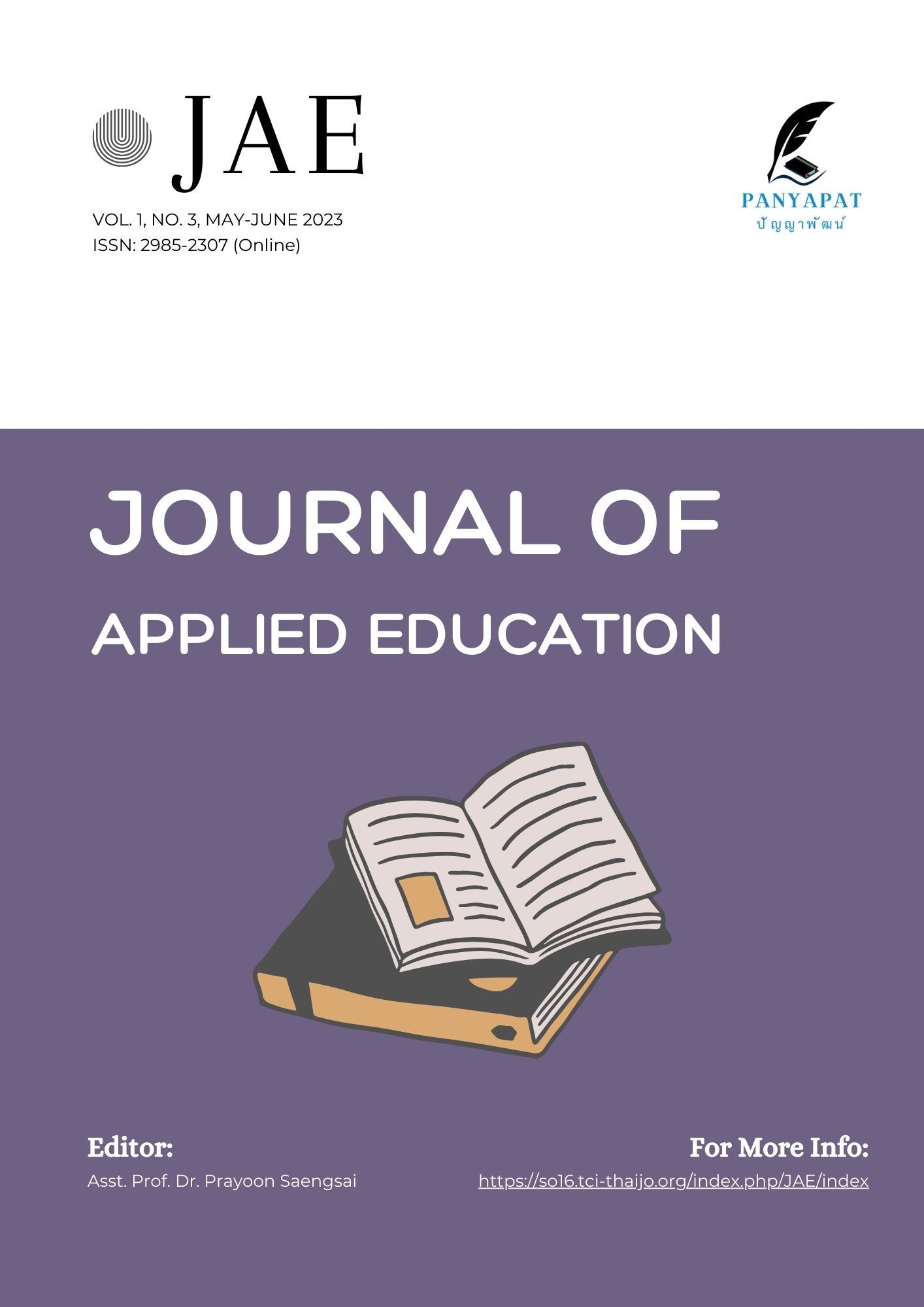Artificial Intelligence and Educational Development
Main Article Content
Abstract
This article aims to present Artificial Intelligence and Educational Development. The study found that Artificial intelligence has played a role in facilitating and promoting education in creating learning formats with various functions. Respond to user needs. This is considered beneficial to both students and teachers in making them able to access learning resources more easily. Artificial intelligence can also effectively adapt to the needs of each student. It can also be used to improve teacher efficiency and can also be used to develop new teaching methods. more efficient.
Article Details

This work is licensed under a Creative Commons Attribution-NonCommercial-NoDerivatives 4.0 International License.
References
กฤติยา รัตแพทย์. (2561). AI: Artificial Intelligence หรือปัญญาประดิษฐ์. สืบค้น 1 เมษายน 2566. จาก http://www.dstd.mi.th/board/index.php?topic=3400.0.
ฉัตรพงศ์ ชูแสงนิล. (2562). ปัญญาประดิษฐ์เพื่อการเรียนรู้. บทความวิชาการ สถาบันส่งเสริมการสอนวิทยาศาสตร์และเทคโนโลยี (สสวท.). สืบค้น 1 เมษายน 2566. จาก https://www.scimath.org/article-technology/item/10115-2019-04-19-03-47-12.
ฉัตรพงศ์ ชูแสงนิล. (2562). ปัญญาประดิษฐ์เพื่อการเรียนรู้. สืบค้น 1 เมษายน 2566. จาก https://www.ปัญญาประดิษฐ์เพื่อการเรียนรู้scimath.org/article-technology/item/10110-ai-10110.
ชูพันธุ์ รัตนโภคา. (2559). เอกสารคำสอน วิชา ความรู้เบื้องต้นทางปัญญาประดิษฐ์ (Introduction to Artificial Intelligence). กรุงเทพฯ: ภาควิชาเทคโนโลยีวิศวกรรมอิเล็กทรอนิกส์ วิทยาลัยเทคโนโลยีอุตสาหกรรม มหาวิทยาลัยเทคโนโลยีพระจอมเกล้าพระนครเหนือ.
ธวัชชัย พงษ์สนาม. (2566). เทคโนโลยี AI กับจุดเปลี่ยนทางการศึกษาไทย. สืบค้น 1 เมษายน 2566. จาก https://citly.me/vmzTd.
มหาวิทยาลัยมหิล. (2566). ปัญญาประดิษฐ์ (AI) พลิกโฉมการศึกษา (ตอนที่ 1). สืบค้น 1 เมษายน 2566. จาก https://il.mahidol.ac.th/th/newsletter52-article4/.
วริศรา กิจมหาตระกูล. (2561). แนวทางกำหนดมาตรการเพื่อควบคุมการใช้ปัญญาประดิษฐ์ (Artificial Intelligence) ในการสอบบัญชี. (ศิลปศาสตรมหาบัณฑิต, จุฬาลงกรณ์มหาวิทยาลัย).
ศรัณย์ศิริ คัมภิรานนท์. (2562). AI เทคโนโลยีอนาคตของประเทศไทย (Artificial Intiligence in Thailand). สืบค้น 1 เมษายน 2566. จาก https://www.scimath.org/article-technology/item/10110-ai-10110.
สำนักงานพัฒนารัฐบาลดิจิทัล (องค์การมหาชน). (2562). AI เทคโนโลยีปัญญาประดิษฐ์ สำหรับบริหารงานและการบริหารภาครัฐ. กรุงเทพฯ: บริษัท ส.พิจิตรการพิมพ์ จำกัด.
สำนักงานราชบัณฑิตยสภา. (2562). พจนานุกรมศัพท์ศึกษาศาสตร์ร่วมสมัย ชุดความฉลาดรู้ (literacy) ฉบับราชบัณฑิตยสภา. กรุงเทพฯ : สำนักงานราชบัณฑิตยสภา.
Aksorn. (2566). สรุปให้รู้ ตามทันโลกการศึกษา EP.16 ปรับรูปแบบการศึกษาอย่างไร? หากยุค Artificial Intelligence (AI) ครองเมือง. สืบค้น 1 เมษายน 2566. จาก https://www.aksorn.com/ac1-artificial-intelligence.
Forbes. (2018). The AI Skills Crisis And How toClose The Gap. Retrieved 1 April 2023. from https://www.forbes.com/sites/bernardMarchr/2018/06/25/the-ai-skills-crisis-and-how-to-close-the-gap/#46fe39d231f3.
Haenlein, M., & Kaplan, A. (2019). A brief history of artificial intelligence: On the past, present, and future of artificial intelligence. California management review, 61(4), 5-14.
Mckinsey Global Institute. (2017). The next digital frontier. New York: McKinsey & Company.
Russell SJ, Norvig P. (2016). Artificial intelligence: a modern approach. London: Pearson Education Limited.
Swiftlet. (2564). AI กับกลไกลพัฒนาการศึกษาไทย. สืบค้น 1 เมษายน 2566. จาก https://citly.me/KSDvM.
Wilson, H. J., & Daugherty, P. R. (2018). Collaborative intelligence: Humans and AI are joining forces. Harvard Business Review, 96(4), 114-123.

